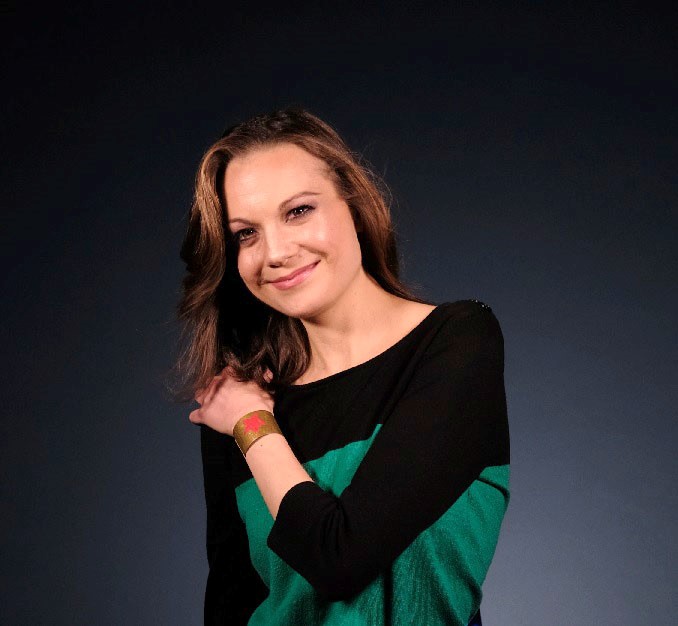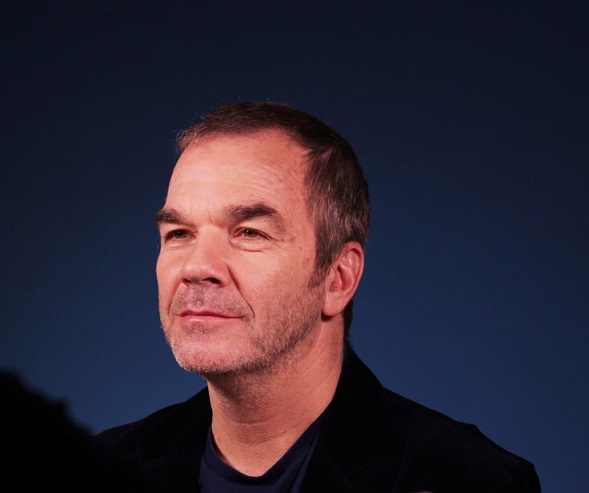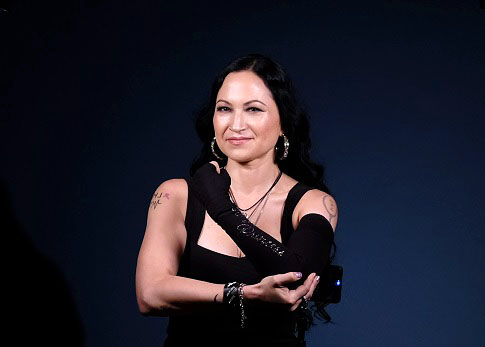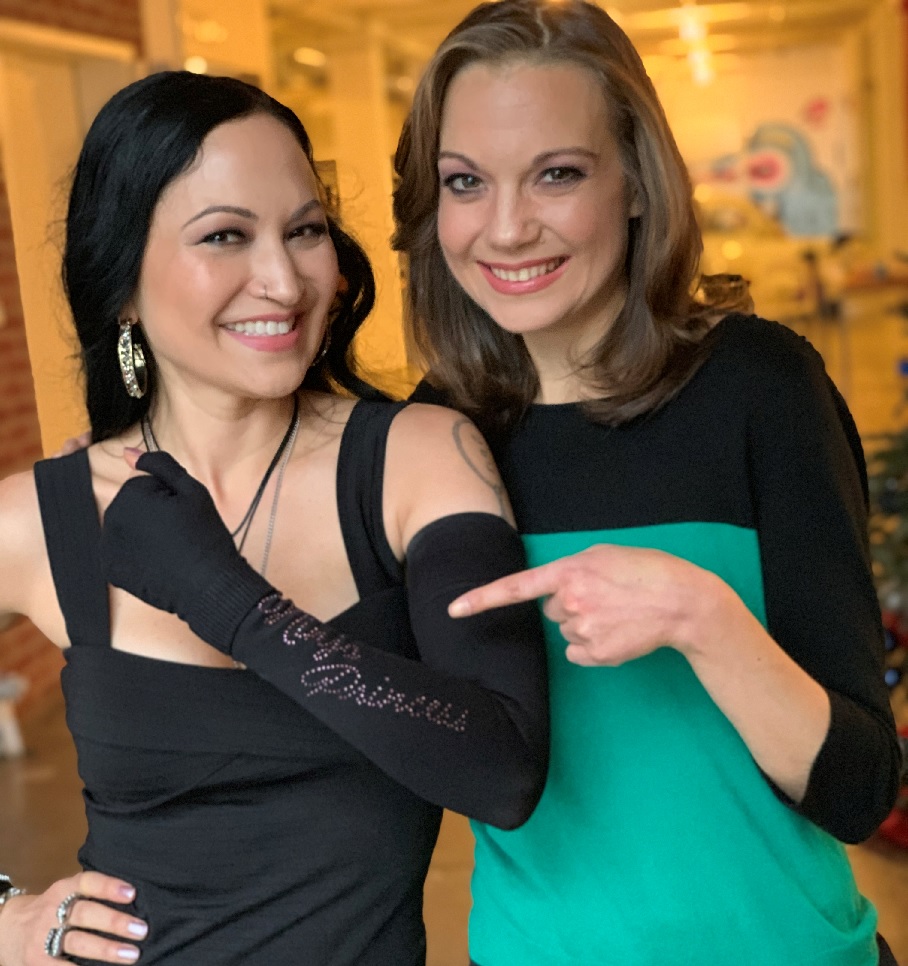The 3 Biggest Ways Cancer Tests Us, And How We Come Out Stronger Because of It
This post was developed in partnership with SCHOTT.
When you’re diagnosed with cancer, things are suddenly put to the test. Your relationships, your beliefs, your emotional being and your outlook on life itself, are all put into perspective. Very rarely do we have time to think about the “little things”, not only in our personal lives, but in our medical journey, too. With everything we have going on when facing a cancer diagnosis, our medications, and the containers they come in, is not something we should ever have to worry about. Luckily, when it comes to treatment, there are people whose sole focus is just that. SCHOTT is an innovative pharma glass and packaging manufacturer providing quality packaging, ensuring that we don’t have to think about these “little things”, so that we can focus on what matters to us most: getting better.
In looking at medications in a way we’d never thought we’d do, we realized there were a few parallels between the very qualities that make those treatments reliable: Strength, Trust, Resistance, and the people who rely on them.
Here, three members of our IHC Family share their cancer journeys and how strength, trust and resilience changed the course of their experience to come out stronger on the other end.
Michael Solomon
My name is Michael Solomon though you can call me Mike, Mikey or Yo, Mikey! Because I’m from Brooklyn. I was diagnosed with Non-Hodgkins Lymphoma which is a treatable though unfortunately not-yet curable cancer. I had a random X-ray as part of a routine physical when I turned 40. My doctor thought he saw something on my left lung so he had me do a CAT scan, and it turned out that my left lung was actually fine. There was nothing there. Except the CAT scan revealed a previously undetected tumor on my right lung. Oops.
I had it removed surgically by the same magician/surgeon who recently removed a tumor from the lungs of Supreme Court Justice Ruth Bader Ginsburg, though trust me, the similarities between RBG and me end there.
Six months later, another tumor showed up in my small bowel (just below the stomach) and I had that surgically removed as well. In between tumors my life got turned upside down and I became acutely aware of my own mortality. It’s quite a revelation that the rumor about your life someday ending in death is — in fact — not a rumor. But with the benefit of hindsight (and survival!) I learned a lot about how to live my life more fruitfully.
My name is Jessica Melore, and I’m a three-time cancer survivor of non-Hodgkin lymphoma (large B-cell and Burkitt’s) and endometrial cancer.
When I was 16 years old, I survived a sudden, near fatal heart attack. At the time I was a senior in high school, co-captain of my tennis team, and had no prior health problems. The left side of my heart was so damaged that I had to live on a then-experimental heart pump while I waited in hope for a heart transplant. Because of complications from surgery, my left leg had to be amputated above the knee. When I woke up, I was determined to reclaim my life and went back to school. After nine months, a few days before graduation, I got the call I’d been waiting for – a life-saving heart transplant. The timing of the transplant allowed me to attend Princeton University on time three months later.
The summer after my freshman year at Princeton, I felt a lump on my neck. At first my doctor thought it was enlarged due to a sinus infection I had at the time, but in two weeks it had doubled in size. A biopsy confirmed my fears – it was non-Hodgkin lymphoma (Large B-Cell). I went to see an oncologist, who handed me a box of tissues when I entered the room and gave me a dismal prognosis. Fortunately, we got a second opinion at another hospital, and I began outpatient chemo treatments while I balanced my classes at Princeton. By the spring semester, I was in complete remission.
At age 25, six and a half years later, I was at a concert when I felt another lump on my neck. It turned out to be a different form of non-Hodgkin – Burkitt’s. Thankfully it wasn’t a relapse, but I had to be in the hospital three weeks out of every month for treatment. After eight months, I was once again in remission.
Eight years later, I noticed some unusual symptoms and went to see my gynecologist/oncologist. We did a biopsy, and I was shocked to discover I had endometrial cancer (cancer of the uterine lining) - which normally affects women over age 50 – even though I was 33. I had a total laparoscopic hysterectomy and went through six rounds of chemotherapy. This time, I donated my hair and documented my journey as I was going through it to show that life doesn’t stop because you have cancer, and cancer doesn’t have to be scary. I’ve been in remission for 2 years.
Kiku Collins
My name is Kiku Collins and I have breast cancer - invasive ductal carcinoma. I was newly married and about to head out for a 5 week gig, acting/playing in a show on Long Island while my husband was on his way to Brazil for a 2 week tour. I had just been to my annual physical, when my doctor noticed that I was due for a mammogram/sonogram. I did both every year since I had lost my mom and my Aunt to breast cancer at young ages.
My doctor must have felt something (even though my breast were was lumpy) because she told me to go before leaving town. I had my scans, and then moved forward with an intense week of long rehearsals. On Sunday nights I hopped on the last bus to the city, and spent all day between doctors and hospitals. Speaking with my husband in Brazil during those two weeks proved to be difficult. I couldn't email or text him what was going on, because it would worry him too much, so I waited until he returned. Luckily, the biopsy happened when he was back. As we waited for the results, we lived our very busy musical lives while also taking care of our daughter.
During the last week of shows, I was at the gym, and my phone rang. It was my doctor. I assumed she'd tell me that I was fine but as it turned out, I had 3 cancerous tumors and calcifications through the rest of my left breast. I actually hung up on my doctor and ran to the locker room sobbing. Somehow, I managed to get back to the apartment I was staying at. I called my husband, and couldn't speak because I was crying so hard but of course, he figured out what was happening. He said he was going to find subs for his gigs, and that's when I found my voice! I told him we needed the work, and I'd see him for my final performance, as planned. Needless to say, he was there the next day.
Over the course of treatment, have you ever thought of the significance of your medication, its containers, and how many were used?
JM: It’s hard to estimate because there were so many! Definitely thousands. On treatment days, I easily had 5-10 vials of blood drawn each day. The second time I had cancer, I was in the hospital three weeks out of every month for 8 months, so that was almost a thousand for that time period alone. For the medications, I only remember plastic bags hanging from my IV pole, so I didn’t get to see any of the processing prior to that – but as each of those infusion solutions probably started with medication concentrate in a glass vial, it would be hundreds with all of my treatments combined.
I have always been grateful for my medication – for the fact that there are solutions that could treat and cure my cancer. I think about the countless hours of research and studies and people who made it possible so that I could extend my life.
KC: My very scientific answer for that is 1 squillion. I have no way of guessing how obscenely high that number might be! Effectiveness, security, and clearness are all important for medications. Though I've stopped taking them, I do know that I never questioned the containers they were in, because they were solid, easy to read, and secure so that I could pack them in a bag and not worry about it. I have friends who take a lot of different meds, and I can't imagine how it would be if they weren't securely and clearly packaged!
I never really thought about it before, but without the containers, my medications actually couldn’t have been transported or administered. It’s good to hear that there are tried-and-true materials and packaging products out there. As a patient, that’s the last thing you want to have to worry about – the pharma companies making changes or risks to drug packaging.
Being diagnosed with cancer can put a lot of things to the test. How were the following attributes put to the test for you: Strength, Trust, and Resilience.
JM: Cancer really put the strength of my mind and body to the test. I lost weight during treatment and there were times that I felt tired and weak – but I learned to predict when that would happen in my treatment cycle and ensured that I would get proper rest. Cancer tested my strength emotionally by helping me realize what I was capable of.
When you receive a cancer diagnosis, it can feel overwhelming, but the way I cope with things is to find a plan of action. Once I let myself feel the initial shock/grief/anxiety of getting diagnosed, I wanted to start my treatment to rid my system of cancer and put it behind me as soon as possible.
Each time I faced cancer, I had to put trust in my care team, trust in my treatment plan, trust in the medication. My parents and I did research and got second opinions – for as knowledgeable as doctors are, getting another perspective doesn’t hurt, and in some instances can change the course of your treatment and save your life.
If someone had told me about all the challenges I’d face and overcome, I never would have believed them – until it happened. From the moment I woke up in the hospital after I faced my first health challenge – the near fatal heart attack and leg amputation, I was determined to reclaim my life, and adopted that same mentality for each cancer battle I faced. I realized that resilience is not just about surviving day to day – it’s what you DO with your life. From there I became a motivational speaker and health advocate to help others tap into their own inner strength when they face adversity. One of the topics I often speak about is finding joy and things to look forward to when you’re going through tough times.

MS: You’ve found out you have cancer. Now what? I remember vividly that when I was awaiting my final diagnosis my best friend said to me: “Mike, no sense worrying about what type of cancer you have. You definitely have something and we need to fight it! So do you want to wear the red bandanna or the blue one?” That’s where I think I first began to draw the strength to stand up for myself, to tie that metaphorical bandanna across my forehead and do whatever it took to win. I think we all have reserves of strength we’re unaware of until we desperately need them, and they have a funny way of showing up right on time. I remember having to be particularly strong when I was getting a bone marrow sample removed from my hip through a giant, painful needle, and when I first got a catheter inserted the opposite way into what to me is the most one-way street on God’s green Earth…my tarse (look it up). Acceptance is also a form of strength, my friends.
When seeking cancer treatment it’s good to trust and it’s even better to trust and verify. When I was discussing my upcoming lung surgery with my surgeon she told me that, she’d either make a 6 inch-long incision in my chest, take out a chunk of my lung, and my recovery would only last a month, or she would first try to do it laparascopically through a tiny incision, and my recovery would only take a couple of days. I said, “That sounds fine. So I guess you give it a go with the tiny incision and then what? We chat about whether I want to proceed with the big cut through my ribs?” She looked at me and said: “No Michael. If I can’t do it that way, you stay sedated, and you have to trust me as I go ahead with Plan B.” This was one small example of how trust became a big part of my experience. It’s okay to get second opinions just as it’s okay not to, and to trust what you think is right for you.
I’m happy to report that my doctor (who was my second opinion about surgery, by the way) managed to pull off the tiny incision trick and I was out of the hospital and back on rollerblades, in two days.
You know that expression, “hang in there”? I learned through my experience with cancer that you can surrender but still hang in there. Most of life is going to suck when you have cancer. Trust me, it takes unpleasantness to a whole new galaxy. But everyone’s outcome is different, so even if you are on the identical trajectory of someone who’s died from the same cancer at the same stage as you have that does not mean you will die. Someone else’s past is not your prologue.
The trick is never to look that far down the track in the first place. I liken the struggle against cancer to something the late-E.L. Doctorow once said: “(It’s) like driving at night in the fog. You can only see as far as your headlights but you can make the whole trip that way.” Resilience to me is understanding that there is a difference between a battle and a war, and you are going to lose a battle or two (or ten…who the f*ck knows?). You can still win the war, and when you win the war you see how those battles eventually recede and life becomes more about what’s ahead of you than what is behind.

KC: I was a personal trainer for 20 years. After my diagnosis, strength took on a new meaning for me. For the first few months, I couldn't mention my disease or even sit through a doctor's appointment without bawling. Now, I still might tear up, but I won't let it own my emotional state. I haven't "beaten" it, and I don't believe that it happened for a reason. The cliches really annoy me!
Strength for me now is being able to talk about it with others and know that whatever happens, I'm doing my best. I'm super honest about it. Sometimes I want to give up, and then I remember that I can't - and I find a surge of strength to continue this new journey.
As for Trust - I lost some "friends" through this process, but gained so many real friends through honest talk and openness. I now have a super fine “honesty filter”. People who have perhaps used me for career or ego moves, people who tried to use my illness to make themselves feel better, people who were upset that I was still at the gym daily, and gigging, and doing things I "shouldn't" be able to do, were now in my past. I trust the people around me, now.
Resilience is all of that stuff wrapped up. The setbacks of surgery aftermath, radiation burns, lymphedema, and just plain ol' PTSD can really knock a person down. And, I have been knocked down, many times. But I keep getting up, and my reaction time is way quicker each time! Life is short, and I want to do good things with it!

How did/does having cancer change the way you look at what it means to be "strong"?
JM: Cancer takes a lot of emotional strength – not only of you as the patient, but of your caregivers. I learned to set goals to keep myself motivated and take time for self-care. I started wearing my Wonder Woman wristband the morning of my hysterectomy during my third battle with cancer. I wore it throughout my chemo treatments, to remind myself of how far I’d come. I still wear it to this day to encourage others to embrace their inner “Wonder Woman” (and “Wonder Men”) when they face challenges in life.
MS: I think I realized that weakness can be a strength too. Whatever it takes. To me though, vulnerability is an important part of what makes us human. If we can embrace our vulnerability and accept it, we can accept ourselves, learn to love ourselves, and then hopefully find the strength to fight for someone we love – ourselves.
I think vulnerability is also critical in dealing with the aftermath of a cancer struggle, the part of the “war” that often gets overlooked. When you’re sick everyone around you is pulling for you to get to remission. But once you’re there, and everyone has gone back to their normal lives, you are left alone -- like a veteran coming home from a war -- to deal with the dramatic way that your life has changed and the uncertainty about recurrence that stays with you from now on. Being strong means not just burying your feelings (although at times it can be the best approach) but also embracing your own weaknesses and seeing them as a rich and beautiful part of who you are.
KC: Being strong is no longer only about muscle mass. It's about continuing my life as it was, but with a much richer perspective. I'm in the gym daily - with my LympheDiva's sleeves and gauntlets, keeping myself healthy and physically strong. My scar tightness can be seen in my gym tops, and I've never tried to hide it.
While on your cancer journey, what is one thing (or person, event, place) that kept you from giving up? How do you move past, "I can't do this"?
JM: I love my life and the people in it, so for me it was the fear of missing out – not only because of the threat of my mortality, but all the fun things in my life that I wanted to participate in. After my heart attack, it was things like going to the prom and being in the school musical. With my cancer battles it was getting back to college and exploring New York City with my friends. It gave me goals to work towards.
MS: My daughter was my inspiration. I remember thinking that I was not going to let that kid go through life without a Dad because I had shied away from what was going to be an ugly fight. I felt I had to suck it up for her.
KC: I have 2 heroes in this, in addition to my career. My daughter. I was basically her, when my mother was sick. But, back then, we didn't talk about it. So, I was left wondering, and imagining, what was happening. My mother was definitely metastatic, and had a hysterectomy in addition to her mastectomy.
It's terrifying as a child to watch your parent die over the course of 10 years. I tell my daughter everything. She helped me after surgery to empty drains. She came to my last radiation treatment and wrote a science paper on it. She is a warrior who sees that I'm not afraid of dying, but I want to live as long as I can, happily. Of course, my husband, too! I told him to leave me as soon as I found out I was sick. He didn't sign up for this, having just married me. He never left my side, no matter how upset I got, no matter how angry I got at the world, no matter how the treatments made me insane. He has gone to every doctor's appointment that he could. He's my best friend, and I don't know if I'd be alive without him through all of that.

Thank you to Kiku, Michael, and Jessica, for so openly sharing their stories and for supporting our IHC Family. And let this serve as a reminder for our entire community: The combination of our strength to defy cancer, along with our trust in those closest to us, and our pure resilience, is what pushes us to bounce back.
We partnered with experts from SCHOTT to create this post – some of the countless people who work hard every day to ensure that we get the best treatment.
Learn more about the role of pharma glass and packaging.
How was your “strength”, “trust”, and “resilience” tested during your own journey with cancer?
Images courtesy of IHadCancer.








Team I Had Cancer is the group of people behind the scenes, making sure IHadCancer.com is running, and that you're connecting to the people you need to know for the support and information you need while dealing with cancer.